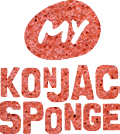Men’S Acne – Facts and the Medication by Robert Jack
Posted by admin on May 31, 2012 in Reviews | Comments Off on Men’S Acne – Facts and the Medication by Robert JackYou might be in the state of outgrowing your teenage acne or may possibly be struggling with relapsed acne in your adulthood. Acne in adult men becomes very irritating, yet it’s not rare. Read on to know more about the facts and the treatments associated with men’s acne.
Acne in Adult Men
Acne doesn’t target teenagers only. Lots of people observe a breakout of acne years after their high school years are over. Many men have complained that their acne breakouts during teenage days never really healed completely and continued to haunt them even in their adulthood. Yet, sometimes acne forms for the first time in men after their teenage. A study has revealed that acne affects both genders; however, men are more prone to long-lasting acne in comparison with women. Still, a good news for you to feel relieved is, adult acne can be cured effectively. You should make yourself aware of the causes, symptoms and the treatment available for acne.
Acne – Symptoms and Causes
Acne begins forming when the greasy materials secreted by the sebaceous glands of the skin block tiny openings for the follicles of hair. In case of bigger openings, the blockages convert into flat, little spots with dark centers, which are known as blackheads. In case the openings stay small, the clogs turn into whiteheads – tiny bumps that look the color of flesh. Both these forms can change into soft inflammations, pimples, nodules or deep lumps. Nodules associated with cystic acne (serious type of acne) grow as stiff swellings underneath the surface of the skin, which becomes inflamed and at times infected.
Listed below are the causes for the formation of acne:
• Bacteria
In case sebum is produced in excess quantities, it clogs the openings of hair follicles in the organs such as chest, back, face and neck. Eventually, bacteria grow in the follicles that are blocked. This causes the development of whiteheads or blackheads on the surface of the skin, which is termed as non-inflammatory acne. At times, pressure developed on account of the deposits causes harm to the walls of follicles, thus leading to pustule growth – a problem characterized by sebum leakage into the surrounding tissues.
• Hormones
High production of hormones in the teens stimulates common acne. Whilst in puberty, girls and boys naturally create high levels of androgen – male sex hormones including testosterone. Testosterone makes the body prepare more sebum (the oil produced in the oil glands located in the skin). This also results in the formation of acne.
Original posting article, click here



